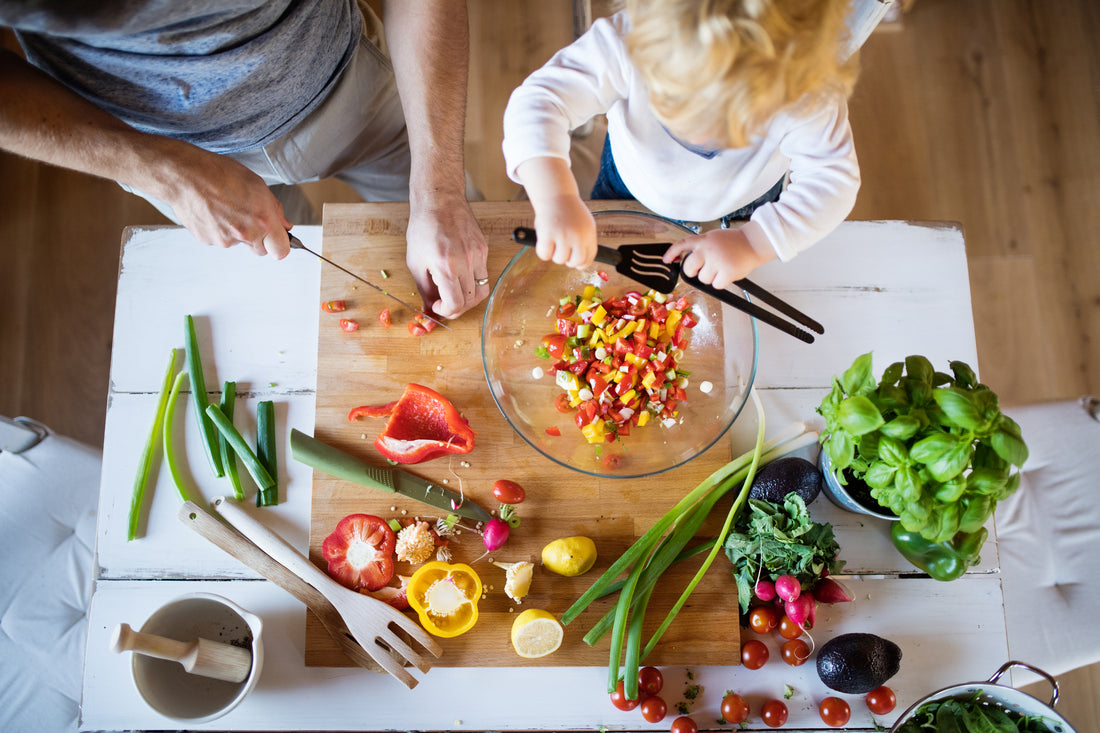
Promoting a Healthy Relationship with Food and Body Image in Children: A Parent's Guide
As parents, one of our most profound responsibilities is guiding our children toward a healthy relationship with food and diet.
In today's world, where weight loss companies and quick-fix solutions abound, it's crucial to instill in our daughters and sons the understanding that food is not the enemy but an essential part of a vibrant, healthy life and that we NEED to eat.
Teaching our children about nutrition goes beyond ensuring they eat their vegetables. It's about fostering a positive mindset around food—one that celebrates its role in nourishing our bodies and supporting our overall wellbeing.
When we model balanced eating habits and approach meals with joy and mindfulness, we teach them that food is more than just calories; it's fuel for growth, development, and energy.
In a landscape where so many diet companies and weight loss medications promise quick results, our role as parents becomes even more critical.
We must show our children that health is not about deprivation or restriction but about making choices that honor our bodies and promote longevity.

By prioritising nutrient-dense foods and enjoying treats in moderation, we demonstrate that a healthy lifestyle is sustainable and fulfilling.
Moreover, teaching our children to love their bodies is paramount. By embracing diverse body shapes and sizes and rejecting unrealistic beauty standards, we empower them to appreciate their unique selves.
When children learn to value their bodies for their strength and resilience, they develop a sense of self-worth that transcends appearance.
As parents, we have the opportunity to shape our children's relationship with food in a way that promotes lifelong health and happiness.
Let's be the role models they need—showing them that food is a source of joy, nourishment, and connection.
Together, we can empower the next generation to embrace a positive relationship with food and to love their bodies just as they are.
5 Things NOT to Do in Front of Your Children:
-
Avoid Labeling Foods as "Good" or "Bad": Refrain from categorizing foods as inherently good or bad. Instead, emphasize the importance of balance and moderation in food choices.
-
Avoid Using Food as a Reward or Punishment: Using food to reward good behavior or punish mistakes can create an unhealthy emotional attachment to eating.
-
Avoid Negative Self-Talk About Your Body: Criticizing your own body can perpetuate negative body image in children. Model self-acceptance and speak positively about your body.
-
Don't Skip Meals or Restrict Food Intake: Demonstrating extreme dieting behaviors or skipping meals sends the message that food should be restricted, which can lead to unhealthy relationships with food.
-
Avoid Comparing Your Body or Eating Habits to Others: Comparisons can fuel insecurities and dissatisfaction. Focus on individual health goals and celebrate differences.
5 Things to Do to Foster a Healthy Relationship with Food and Body Image:
-
Model Balanced Eating Habits: Demonstrate balanced eating by enjoying a variety of nutritious foods and including treats in moderation.
-
Encourage Mindful Eating: Teach children to listen to their hunger and fullness cues, promoting awareness of how food makes them feel.
-
Promote Positive Body Image: Celebrate body diversity and emphasize the importance of self-care and self-acceptance.
-
Cook and Eat Together as a Family: Involve children in meal preparation and enjoy family meals together, fostering a positive and supportive eating environment.
-
Educate About Nutrition Without Judgment: Teach children about the nutritional benefits of different foods without attaching moral value, encouraging them to make informed choices.

